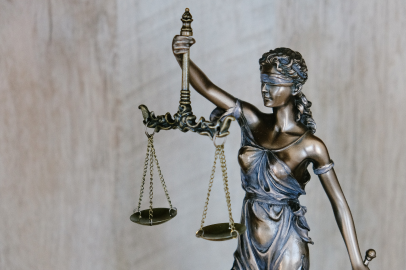Definition of Possession of Firearm by Convicted Felon
In the State of Georgia, you can be arrested and convicted of possessing a firearm by convicted felon if the State proves beyond a reasonable doubt that you either:
- Received, possessed, or transported a firearm while under Felony First Offender Probation, while under Felony Conditional Discharge, or have been convicted of a felony; OR
- Attempted to purchase or obtain transfer of a firearm while under First Offender Probation for a forcible felony, while under Conditional Discharge sentence for a forcible felony, or have been convicted of a forcible felony.
O.C.G.A. § 16-11-131 subsection (e) defines a forcible felony as a crime that involves the use or threat of physical force against any person. Some examples of these types of crimes include armed robbery, aggravated stalking, and first-degree hijacking motor vehicle. Prior felonies that involve drug offenses or controlled substances are generally not considered to be forcible felonies.
At Joseph Williams Law, our Statesboro lawyer has dealt with many criminal law cases that involve possession of firearms by convicted felons. The penalties for possession of a firearm by a convicted felon are severe. Many times, the sentence involves some sort of imprisonment. It’s important that you reach out to a criminal defense lawyer for a free consultation as soon as possible.
How can I fight Possession of a Firearm by Convicted Felon charge?

Lack of Evidence – There was no Possession.
The State must prove beyond a reasonable doubt that you possessed a firearm. To do this, they must prove that you actually or constructively possessed the firearm. The State is not required to prove that you had ownership over the weapon.
- Actual Possession involves situations where the individual knowingly has direct physical control over the object. Here, this type of possession of the firearm typically occurs when it is found in a person’s pocket, waist band, or on their hip. This type of possession is easiest for the State to prove in court.
- Constructive Possession involves situations where the individual does not physically possess the object but does have some sort of dominion or control over the object. This type of possession usually occurs when a firearm is stored in a location that the individual has access to. Constructive possession cannot rest solely upon a person’s mere spatial proximity to the object. The State must still prove beyond a reasonable doubt that the individual had knowledge of the firearm and had the ability to control it as well. This type of possession is harder for the State to prove in court. The State will try to prove constructive possession in a number of ways including using fingerprints, witness testimony, and prior convictions for the same crime.
A criminal defense lawyer can help convince a jury that you had no knowledge of or control over the firearm. Both knowledge and control are essential to proving possession. Without possession, you can’t be convicted of this crime.

Lack of Evidence – It was not a Firearm.
The State must prove beyond a reasonable doubt that what you possessed was a firearm. According to Georgia Code Section § 16-11-131(a)(1), a firearm is considered to be any of the following:
- Handgun
- Longgun (Shotgun or Rifle)
- Any other weapon which will or can be converted to expel a projectile by the action of an explosive or electrical charge
Georgia law requires that if a gun only shoots single projectiles that are less than .46 centimeters in diameter, then it is not considered a handgun or a longgun. There is also a requirement that there be some sort of explosive before the gun can be considered a handgun or longgun.
Your criminal defense lawyer will be able to inspect the gun before trial to determine whether it is a firearm under the law. Your lawyer will be able to cast doubt on whether it is a firearm. If you weren’t actually possessing a firearm, then you are not guilty of this crime.

Lack of Evidence – You are not a Convicted Felon.
The last element that needs to be proven beyond a reasonable doubt is that you were a convicted felon prior to possessing the firearm. You are considered a felon when you are convicted of a crime with a criminal punishment of over one year. Individuals who are currently serving Felony First Offender sentences or Felony Conditional Discharge sentences are prohibited from possessing a firearm as well.
The State proves felony convictions in court by using certified copies of defendant’s criminal convictions. Your lawyer should get a copy of your criminal record. The criminal record shows the entire criminal history of a person, including whether they are currently a first offender probationer.
It’s really important to understand when to agree to convicted felon status. If it’s going to be easy for the State to prove, sometimes it’s in your best interest to agree to the prior felony. It’s better to agree than for the State to go on about what you’ve been convicted of in the past in front of a jury. This is particularly true when the other prior felony offense(s) sound very bad. The jury may hold your past against you and treat you unfairly because of it. Luckily, the Supreme Court has ruled that it’s wrong for a trial court to disallow a defendant to stipulate to convicted felon status and instead admit the evidence of the earlier conviction.
This is a tricky defense. Your defense lawyer should be able to view your criminal history and determine whether you are a convicted felon under the Georgia code. Thereafter, you along with the help of your criminal attorney will need to decide whether to stipulate to the prior felony or hold the state to its burden.

Affirmative Defense – It was Self-Defense.
The Georgia Court of Appeals has ruled that justification and defense of self or others is an absolute defense to the criminal charge of possessing a firearm by convicted felon. Since this is an affirmative defense, you will have the burden of proving by a preponderance of the evidence that you were justified in possessing the firearm. If the jury believes that you were justified, then you will not be guilty.
A person is justified in threatening with a firearm or using force with a firearm against another when he believes that using such threat is necessary to defend himself or a 3rd person against the other’s imminent use of unlawful force. Your attorney can present this defense by cross examining state witnesses and calling witnesses for the defense. Presenting affirmative defenses takes skill. You should speak to a criminal lawyer about what happened in your case so that they can prepare your defense.

Pretrial Motions – Unlawful Search and Seizure
The Fourth Amendment of the U.S Constitution protects people from unreasonable searches and seizures by the government of their persons, houses, papers, and effects. If your Fourth Amendment appears to have been violated, your attorney can file a motion to suppress the evidence. A hearing will be scheduled to determine whether law enforcement followed proper procedures during the search and seizure that yielded the firearm or other dangerous weapons. If the judge agrees that the Fourth Amendment was violated, then the fruits of the unlawful search can be excluded at trial. In this case, if the weapon is excluded, then you cannot be guilty of this crime.
Penalty for Possession of Firearm by Convicted Felon
It is a felony to possess a firearm if you are a convicted felon. This is a much more serious crime than carrying a concealed weapon without a permit or possessing a handgun under 18 years of age. Both of those charges are considered misdemeanors.
The penalty for possessing a firearm by convicted felon can range from 1 to 10 years imprisonment. The first time you are convicted of this crime, you will be sentenced somewhere between 1 to 10 years. If this is a second or subsequent conviction, then the sentencing range will be between 5 and 10 years. Lastly, if it is the forcible felony type, then the sentence will be 1-10 years imprisonment.
Even though these sentences call for imprisonment. Your attorney can argue on your behalf and negotiate with the state as to why some of the sentence should be probated. It is important that you a find a qualified gun lawyer to negotiate and argue on your behalf in gun cases.

Restoring Firearm Rights in Georgia
Even if someone is a convicted felon, under Georgia law a convicted felon can have their firearm rights restored. The Georgia State Board of Pardons and Paroles decides whether to restore an individual’s rights.
There is a thorough application on the Georgia State Board of Pardons and Paroles website that must be completed and submitted to the Board. In addition to the thorough application, to qualify for restoration of firearm rights the following conditions must also be met:
- The prior felony must be a State conviction, not a Federal conviction
- There must be a disposition on the prior felony, i.e., can’t be dead docketed or pending
- Must have successfully completed prior felony sentence
- Must be free of supervision and criminal involvement for at least 5 years prior to applying
- Must submit 3 Letters of Recommendation from citizens with unquestionable integrity
- Must have a face-to-face interview with a Board staff member
Even if these conditions are met, there is no guarantee that the Board will grant your application. If your application is denied, you must wait at least two years before applying again. An experience restoration of rights lawyer can guide you through the process making it much easier for you to submit your application. With the help of an attorney, your chances of having your application granted are much higher.
Frequently Asked Questions
How long before a convicted felon can own a gun in Georgia?
Never. If you have been convicted of a felony, you cannot own or possess a firearm. You will need to have your firearm rights restored by the State Board of Pardons and Paroles before you can own or possess a firearm in Georgia.
Can a felon own a gun after 10 years in Georgia?
No, a convicted felon cannot own a gun in Georgia. If you successfully completed a First Offender or Conditional Discharge sentence, then you are not considered to be a felon. As long as you are not a felon, then you can own a gun.
Can a felon in Georgia purchase a gun?
No, a felon cannot legally purchase a gun in Georgia. It’s also a crime to attempt to purchase a firearm if your prior felony is considered a “forcible felony.”
How can I be charged with this crime if the gun was not found on me?
The State can prove possession through what is called constructive possession. Even though the gun was not found on you, the State can prove that you possessed it if they can show you knew where the gun was, and you had the ability to have sort of control over it.
I was sentenced under First Offender Law or Conditional Discharge Law. How can they convict me of this crime?
Unfortunately, it is unlawful for individuals who are currently serving their First Offender or Conditional Discharge sentence to possess a firearm. Under Possession of Firearm by Convicted Felon law, they are considered the same as a convicted felon. Once you successfully complete your First Offender or Conditional Discharge sentence, you can lawfully possess a firearm.
Can I be charged with possession of firearm by convicted felon and possession of firearm during commission of a crime?
Yes, you can be charged and convicted of both. These charges do not merge. These crimes are similar, but they each have an element that the other does not. One has the “convicted felon” element, and the other does not. One has the “during the commission of a crime” element, and the other does not. Thus, these crimes do not merge into each other.
